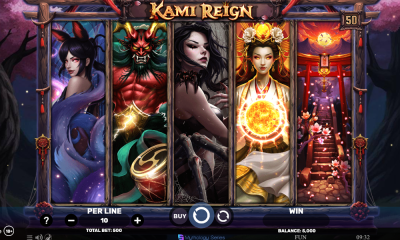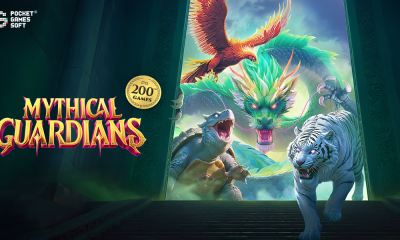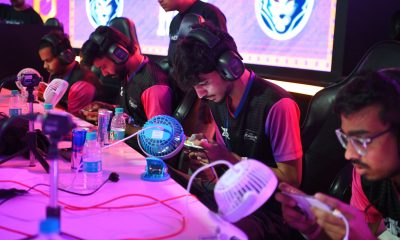Gaming
EGDF: UNITY’S INSTALL FEES ARE A SIGN OF LOOMING GAME ENGINE MARKET FAILURE
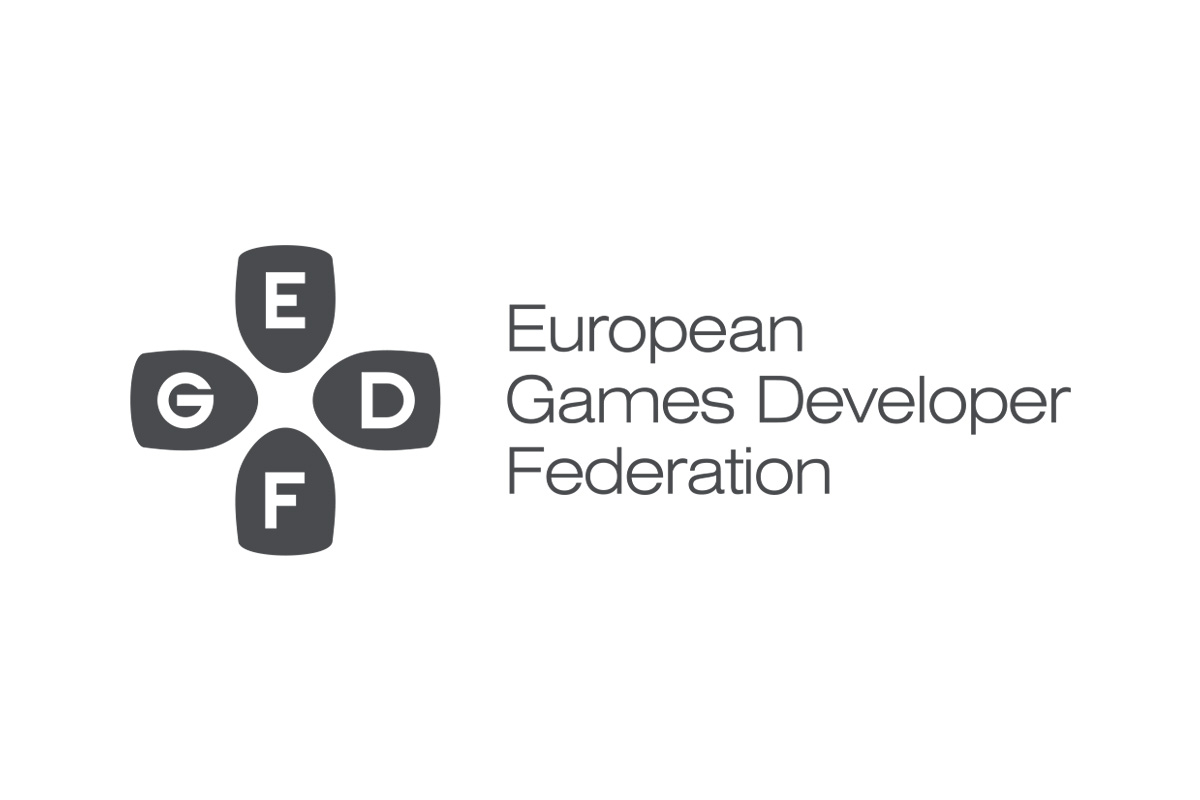
Step by step, video game engines are becoming key gatekeepers of European cultural and creative sectors. Currently, Unity dominates game engine markets, Unreal being its primary challenger. These two engines are not just clear market leaders in the game industry but increasingly vital market actors in film, architecture, and industrial design and simulations. In 2022, Unity reported that globally, 230,000 game developers made and operated over 750,000 games using the Unity Engine and the Unity Gaming Services portfolio of products.
Unity’s new fee structure is going to have a drastic impact on the game industry.
Over the years, the Unity game engine has reached close to unofficial industry-standard status in some game markets. Its well-designed tools and services have lowered the market access barriers in the game industry. Furthermore, it has played a crucial role in removing technological barriers to cross-platform game development. Now, Unity has informed the game dev community that it will move from subscription-based fees to subscription and install-based fees, which will significantly increase the game development costs for most game developers relying on their services. EGDF finds it unfortunate that Unity has significantly damaged its reputation as a reliable and predictable business partner with these sudden and drastic changes in its pricing principles.
Bigger game developer studios have the luxury of being able to develop their own game engines. Consequently, market uncertainty and significantly increased service provider risks caused by Unity’s new fee structure will hit, in particular, SME game developers. It will be much harder for them to build reliable business plans, make informed decisions on game engines, and run a profitable business. Many of these studios struggled to access risk funding before Unity’s announcement, and it has only worsened their situation.
Unity’s decision will have a broader impact on the whole game industry ecosystem. Many professional game education institutions have built their curriculum on the Unity game engine. If Unity’s new pricing model starts a mass exodus from Unity’s engine, it will lead to rapid changes in professional game education itself and place many young industry professionals who have built their career plans on mastering Unity’s tools in a very difficult position.
Although Unity’s decision will cause significant challenges for the industry, EGDF kindly reminds that instead of focusing on blaming individual Unity employees for the changes, it is far more productive to focus on taking measures that increase competition in game engine markets.
Unity’s anti-competitive market behaviour must be carefully monitored, and, if required, the European competition authorities must step in.
Unity is an increasingly dominant market player in the game markets. According to Unity’s own estimate, in general, 63% of all game developers use its game engine. The share can be even higher in some submarkets. Unity estimates that 70% of top mobile games are powered by its engine. Unsurprisingly, Unity’s game engine is now a de facto standard in mobile game markets to the extent that whole formal professional game education degree programmes have been built on training its use. However, Unity’s market dominance is not just based on the quality of its game engine. It is also an outcome of aggressive competition practices and systematic and methodological work of making game developers dependent on Unity services.
How Unity bundes different services together potentially distorts competition in game middleware markets. Over the years, Unity has, step by step, bundled its game engine more and more together with other game development tools under the Unity Gaming Services portfolio. Unity is not just a game engine; it is also a player sign-in and authentication service, a game version control tool, a player engagement service, a game analytics service, a game chat service, a crash reporting tool, a game ad network, game ad mediation tool, an user acquisition service and in-game store building tool. This creates a significant vendor lock risk for game developers using Unity services. It also makes it difficult for many game middleware developers to compete against Unity and, all in all, significantly strengthened Unity’s game engine’s market position compared to its rivals.
Now, Unity is strategically using install fees to deepen the lock-in effect by creating a solid financial incentive to bundle other Unity services even closer to its game engine: “ Qualifying customers may be eligible for credits toward the Unity Runtime Fee based on the adoption of Unity services beyond the Editor, such as Unity Gaming Services or Unity LevelPlay mediation for mobile ad-supported games. This program enables deeper partnership with Unity to succeed across the entire game lifecycle.” This will, of course, drastically impact Unity’s direct competitors.
Unity’s install fees are an excellent example of Unity’s potentially anti-competitive market behaviour. It is clear that if Unity’s pricing model had, in the past, been similar to the now-introduced model, it would likely never have achieved the level of dominance it enjoys today, as more developers would have chosen another alternative in the beginning.
The fact that Unity’s new install fees are only targeted at video games and do not apply to other industries logically leads to a question: Is Unity setting prices below cost level at different market segments, or is Unity charging excessive prices in game markets? Furthermore, does the fact that Unity is now introducing an install fee on top of the licensing fee mean that licensing fees have before been below cost level? Or does the introduction of install fees on top of the licensing fees of their game engine allow them to provide other, lock-in generating, services below cost level?
In the end, Unity has built its dominant position in game markets for years and systematically made game developers more dependent on it. It is a good question if Unity has now crossed the line of abusing its market dominance on weaker trading parties that deeply depend on its services. Game productions can take years, and game developers cannot change their game engine at the last minute, so they are forced to accept all changes in contract terms, no matter how exploitative they are. Unity must know that if they had given more notice, many more developers might have had a realistic chance of abandoning Unity altogether by the time the new pricing came into play.
The new install fees will limit game developers’ freedom to conduct business as it pushes them to implement Unity ad-based business models even in games that otherwise would not have ad-based monetisation. Furthermore, this will create a competitive disadvantage for those game distribution platforms that do not use ad-based monetisation at all (e.g. subscription services and pay-per-download games), as Unity is de facto forcing them to increase their consumer fees compared to channels that allow the use of Unity’s ad-based monetisation tools.
The new install fees will likely lead to less choice for consumers. Install fees will allow Unity to extract value from games that generate a lot of installs through, e.g. virality, but do not necessarily generate money. Install fees will lead to markets where game developers want to limit the downloads and try to avoid installs from the wrong players. This can potentially kill part of the game market. For example, indie developers that have an unfortunate mix of being a success on the number of installs but that are struggling to generate revenue, or hyper-casual game studios based on combining a huge install base with minuscule revenue generated per game.
In the long run, the EU needs to update its regulatory framework to answer the challenges caused by dominant game engines.
Unity’s install fees demonstrate why the EU needs a new regulatory framework for unfair, non-negotiable B2B contract terms. Contract terms Unity has with game developers are non-negotiable. With the new non-negotiable install fee, European game developers have to either withdraw their games from markets, increase consumer prices or renegotiate their contracts with third parties. For example, if a game memory institution makes games available for download on their website, a game developer studio must now ask for a fee for it or ban making European digital cultural heritage available to European citizens. The three-month time frame Unity is providing for all this is not enough.
The Commissions should introduce a specific regulation for non-negotiable B2B contract terms. The regulation should provide sufficient time (e.g. in a minimum, six months) for markets to react to significant changes in non-negotiable terms and conditions that a service provider has communicated to their business users in a plain, clear and understandable manner (e.g. now it is unclear how Unity counts the installs). Furthermore, the Commission should bring much-needed market certainty by banning retroactive pricing and contract changes.
The Commission should include game engines in DMA. While reviewing the recently adopted Digital Markets Act (DMA), the Commission should consider lowering the B2B user thresholds and adding gatekeeper game engines under its scope. This would, for example, ensure that Unity cannot use data it collects through its game engine to gain an unfair competitive advantage for its other services like advertisement services.
The Commission should increase its R&D support for the European game industry. The fact that there is no major competitor for Unity Engine that does not require constant back-end server connection is a market failure in itself. The Unity Game engine is not fully scalable because Unity has built its engine in a way that it calls home every time it is installed to report instals for Unity. Consequently, the Commission should strengthen its efforts to support the emergence of new European game technology and business service providers. In particular, the Commission should increase its support for privacy-friendly open-source alternatives for game engines, like for example Godot or Defold or similar, that do not require constant back-end server connection and thus have no need for scalable revenue-based fees or install fees.
Arena Racing Company
Arena Racing Company awarded United Arab Emirates Gaming-Related Vendor License
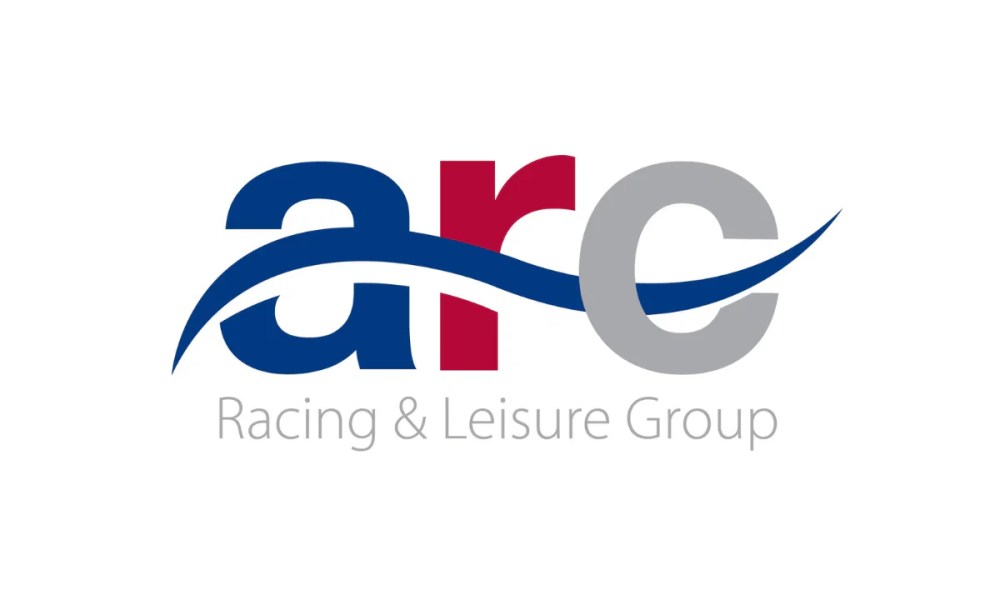
Arena Racing Company (ARC) has been granted a Gaming-Related Vendor license from the United Arab Emirates’ General Commercial Gaming Authority (GCGRA), an independent entity of the UAE Federal Government with exclusive jurisdiction to regulate, license, and supervise all commercial gaming activities.
The license, operational with immediate effect, affords ARC the opportunity to provide its products and services to licensed operators in the region. Notably, the Racing1 Markets service, an all-in-one horse and greyhound racing solution delivered in conjunction with Racing1 alliance media rights partners at 1/ST CONTENT, Racecourse Media Group (RMG), and Tabcorp, alongside technical partner Pythia Sports. ARC has been added to the list of licensed vendors as per the GCGRA website.
Jack Whitaker, Commercial Manager at ARC, said: “Obtaining this license is a great achievement for ARC and its Racing1 partners. The emerging regulated UAE market is incredibly exciting, and we look forward to showcasing our innovative products and services in the region.”
The post Arena Racing Company awarded United Arab Emirates Gaming-Related Vendor License appeared first on Gaming and Gambling Industry Newsroom.
Battle of the Tribes
POLYTOPIA WORLD CHAMPIONSHIP 2025 BREAKS RECORD PARTICIPATION AS FINALS DRAW CLOSER

Reading Time: 2 minutes
Celebrated strategy game The Battle of Polytopia confirms its first ever World Championships has exceeded expectations with over 10,000 sign-ups in its qualifying rounds. While no stranger to tournaments, previously hosting smaller scale, local tournaments called ‘Polysseums’, developer Midjiwan’s first step into global esports has been met with extreme success. The inclusive esports event has a $10,000 prize pool and will conclude on 6 December 2025, 14:00-21:00.
The finals will take place in front of a live-studio audience, with expert commentary and a chance to peek behind the scenes at Midjiwan itself. First place will receive $4,000, the runner-up will take away $2,000, the third and fourth place finishers will get $1,500, and the fifth and sixth place $500.
The Polytopia World Championship 2025 is being hosted by eSports platform, Challengermode, who Midjiwan has relied on for its monthly local tournaments since 2022. Midjiwan also partnered with Black Molly Entertainment to help organise and manage the event. Black Molly Entertainment have years of experience managing eSports tournaments, with notable events including the Geoguesser World Cup and CS:GO Pinnacle Cup Championship.
Midjiwan has worked closely with its community to ensure engagement is high with each round, building a bespoke ‘Spectator Mode’ into the game so fans can watch each game live through the game itself. In the spectator mode the viewer has visibility of all players simultaneously, with stats on how many cities, technologies, kills and more available for quick access.
Christian Lovstedt, CEO of Midjiwan commented:
“Polytopia has always been about welcoming all kinds of players into the world of 4X strategy. That’s why our championship is open to everyone – not just pros with sponsors. We’ve been thrilled at the amount of interest this tournament received from our community, reaching participation numbers way beyond our expectations. We’re excited to bring the finalists to Stockholm and can’t wait to see the strategies that emerge.”
The Polytopia World Championship 2025 kicked off in September, with its ‘Battle of the Tribes’ qualifying round – weekly battles where players competed to be the best in each of the game’s 12 tribes. After an exciting six weeks, the top player from each tribe faced-off, reducing the qualifiers to six finalists. These six winners are listed down below.
|
Tribe |
Qualifying Player |
|
IMPERIUS |
ArthurL248 |
|
BARDUR |
slimmingboy |
|
OUMAJI |
Dreamlander3000 |
|
HOODRICK |
Theetat |
|
XIN-Xi |
LeLiberateur |
|
LUXIDOOR |
Meisterlampe |
Recaps of each round of the tournament prior to the finals can be watched on the official Battle of Polytopia YouTube channel.
-
Part 1: Polytopia World Championship 1st Qualifiers Wrap-Up – BARDUR, IMPERIUS, KICKOO, ZEBASI
-
Part 2: Qualifiers Wrap-Up – Oumaji Hoodrick Yadakk & Quetzali – World Champoinship 2025
-
Part 3: Final Qualifiers Wrap-Up – Xin-Xi, Luxidoor, Ai-Mo & Vengir – World Championship 2025
-
Face-off stream: https://youtube.com/live/GnU6mWPoJiY?feature=share
To watch the finals live on December 6,visit here: https://polytopia.io/stream/
To stay up to date on the Polytopia World Championship 2025, or purchase one of the limited tickets for the live event, visit the official website or join the Official Polytopia Discord.
The post POLYTOPIA WORLD CHAMPIONSHIP 2025 BREAKS RECORD PARTICIPATION AS FINALS DRAW CLOSER appeared first on European Gaming Industry News.
Betiator
Delasport Unveils a Crash Game for Sports Betting

Reading Time: 2 minutes
Leading iGaming supplier Delasport teases a one-of-a-kind sports betting crash game called Betiator – a new in-play experience that merges live sports with the tension and excitement of crash games.
Inspired by the groundbreaking casino genre, the company once again pushes the whole industry to a new phase in evolution by allowing sports bettors to play in the same easy and fun way as fellow casino players. Crash games are booming in the casino world, showing that players crave more emotional, fast, and visually engaging formats – and Betiator brings that same adrenaline-charged energy to the sportsbook.
It changes the scene by introducing a truly innovative way to bet on sports, keeping players at the edge of their seats during the game. Designed to excite both sports bettors and casino players, it marks a defining moment for innovation.
This product comes as a logical next step in the evolution of live betting and the company’s goal to disrupt the iGaming industry. It demonstrates Delasport’s successful commitment to unique innovation: a strategy they call “Going Beyond Content” –building on the success of products and features like SuperPot, My Sportsbook, My Combo, Double My Winnings, and many more.
“Sports bettors deserve the same level of innovation and excitement that casino players get all the time,” Delasport’s CEO Oren Cohen Shwartz says. “At Delasport we’re taking the whole game to a new playing field with Betiator. Live betting won’t feel outdated anymore as we’re bringing in the thrill of the casino to sports betting.”
While details about Betiator remain under wraps for now, Delasport promises a completely new way to experience live sports. Operators and partners eager to see it in action can schedule exclusive demos and discover more at ICE Barcelona 2026, taking place January 19–21, where Betiator will make its official debut.
The post Delasport Unveils a Crash Game for Sports Betting appeared first on European Gaming Industry News.
-

 iGaming News 20264 days ago
iGaming News 20264 days agoSpinomenal Rings in 2026 with Japanese-Inspired “Kami Reign Ultra Mode”
-

 Hold and4 days ago
Hold and4 days agoPragmatic Play Rings in 2026 with Joker’s Jewels Hold & Spin™
-

 Five Elements Slot4 days ago
Five Elements Slot4 days agoPG Soft Concludes 2025 with High-Volatility Launch: Mythical Guardians
-

 Latest News4 days ago
Latest News4 days agoFrom ‘Mummyverse’ to Crash Games: Belatra Reviews a Landmark 2025
-

 Bespoke Gaming Studio4 days ago
Bespoke Gaming Studio4 days agoCreedRoomz and Casumo Forge Strategic Partnership to Elevate Live Casino Experience
-

 Barbarossa Dragon Empire3 days ago
Barbarossa Dragon Empire3 days agoPeter & Sons Expands Ontario Footprint with Major Casino Time Content Deal
-

 Akshat Rathee3 days ago
Akshat Rathee3 days agoIndian Esports 2026: Strategic Growth and the Asian Games Milestone
-

 Brazil Betting Law3 days ago
Brazil Betting Law3 days ago2026 iGaming Regulatory Roadmap: Key Compliance Deadlines








